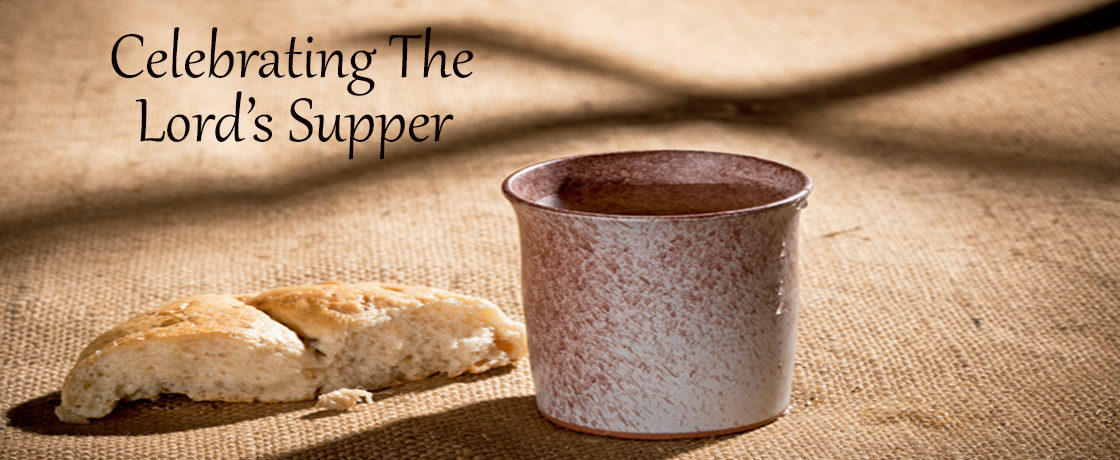Celebrating the Lord’s Supper
Celebrating the Lord’s Supper
1 Corinthians 11:17–34
The Lord’s Supper serves as a center and symbol of Christian unity.
Verse 33: “So then, my brothers, when you come together to eat, wait for each other.”
Paul gets rid of all of the“table fellowship,” if all it was going to do was generate more animosity, resentments, bitterness, feelings of superiority and inferiority, inclusion, and exclusion. This rite of communion, the Lord’s Supper, which is supposed to be a center point of Christian unity had become the focal point for division!
Verse 24: “The body that was broken…” In one metaphorical usage, the church is the body of Christ. So then, by a kind of extension, this bread that symbolizes Christ’s body broken on the cross, also symbolically represents Christ’s body, which is the church.
It is not suggesting that we somehow ingest Christ or Christ’s blood and somehow, thereby, participate in Him. That is a problem of English translation. It is simply not what the text says. We are a fellowship of the blood of Christ. We are the fellowship of the body of Christ. It is a rite that serves as a center and symbol of Christian unity.
The Lord’s Supper is a time to remember.
The institution of the Lord’s Supper was built and was a culmination of the Passover rites. The Israelites gathered year by year, once a year, to remember, on the appropriate date, The Passover. What did they do? They remembered.
By remembering, it was a type of covenantal renewal.
Within that framework, if you put yourself in the disciples’ place, Christ takes the bread (they still don’t really understand much about the cross; they certainly don’t at this point understand the resurrection) and He breaks it. This inaugurates the new covenant.
The disciples did not look back to the bread. They looked back to the cross. They remembered that on the night before Jesus had died —just as the Passover feast had been celebrated by God’s people before they’d been delivered out of Egypt, in anticipation, in an act that they would only understand afterward—
Jesus had instituted a rite, which was to be remembered again and again and again during their lives. It was to force them in a simple rite endlessly repeated, to remember.
The Lord’s Supper is a proclamation of Christ’s death.
It is for Christians only, but apparently, in the ancient church, it was also an opportunity to proclaim Christ. It became a kind of visible word. If you’re not a Christian, don’t take the elements. It’s a kind of contradiction in terms for you to say, ‘I remember,’ when you don’t remember. You don’t know the Lord.
You ought to watch, however, how Christians think about the death of Christ and want to be drawn back to that death and it’s meaning again and again, and upon which they fasten all their hopes for reconciliation to God—for the removal of their sins, for forgiveness, and for their hope and assurance of eternal life. We remember.
The Lord’s Supper is a temporary ordinance.
Verse 26: That we are to do this until He comes. For, in the new heaven and the new earth, we are not going to be celebrating the Lord’s Supper anymore. Will we no longer have to be reminded of the wounds of the Lord and His death? We will have been so transformed that we are no longer tempted by sin or defection. Because of that, this is an important but temporary rite, which itself anticipates the Lord’s return. It is a temporary ordinance.
The Lord’s Supper provides regular opportunity for spiritual & moral self-examination.
What is an unworthy manner? It is saying, “I remember the death of the Lord, His broken body on my behalf, offered up to pay for my sin,” while I am nurturing all kinds of sin within. That’s an unworthy manner. It’s essentially deceit and lies. It’s an unworthy approach.
The Lord hung on the cross. He hung on the cross for you, and if you remember while you nurture sin, you’re sinning against Christ’s body. You’re sinning against the cross. You’re sinning against His sacrifice. We say we remember, but spit in His face when we nurture sin. That’s what’s being covered here. The manner of approach for the Lord’s Supper must be one of self-examination and confession of sin.
The Lord’s Supper can be dangerous.
Paul holds that at least some of the ailments in the congregation at Corinth are bound up with their nurtured sin while still they are approaching the Lord’s Table. Nowhere does the Bible teach that all illness, or the like, is the direct result of an immediate sin.
However, we should not be so foolish to think, either, that it may not be. In general, both in Scripture and in the pages of history, it is when the church is closest to revival times, when it is closest to massive growth, to the impartation of the Spirit in massive revival, that is also when, by and large, judgment falls most quickly too. Look at Ananias and Sapphira. Remember.

